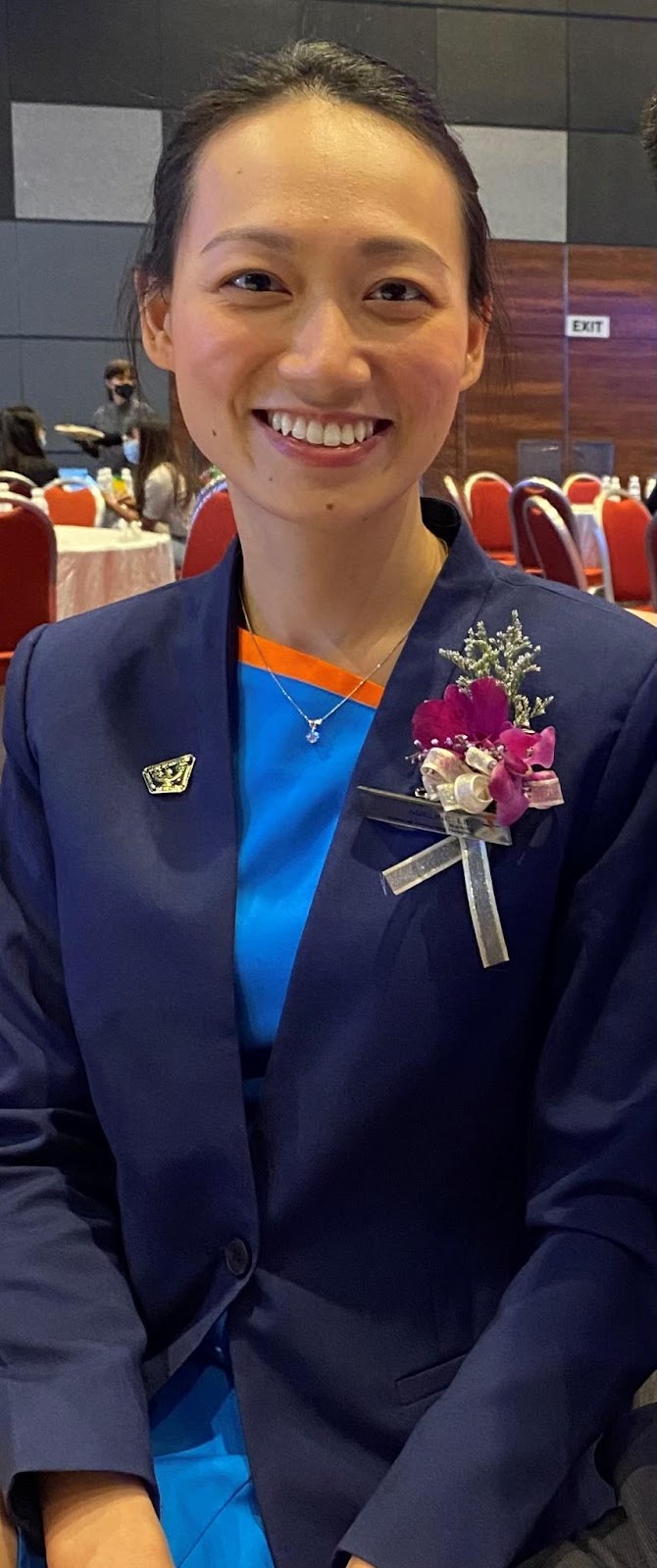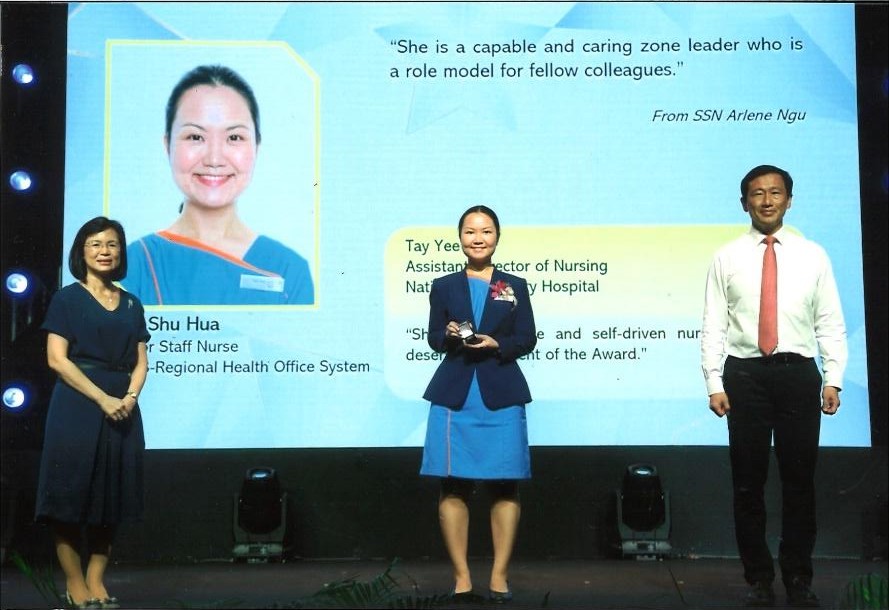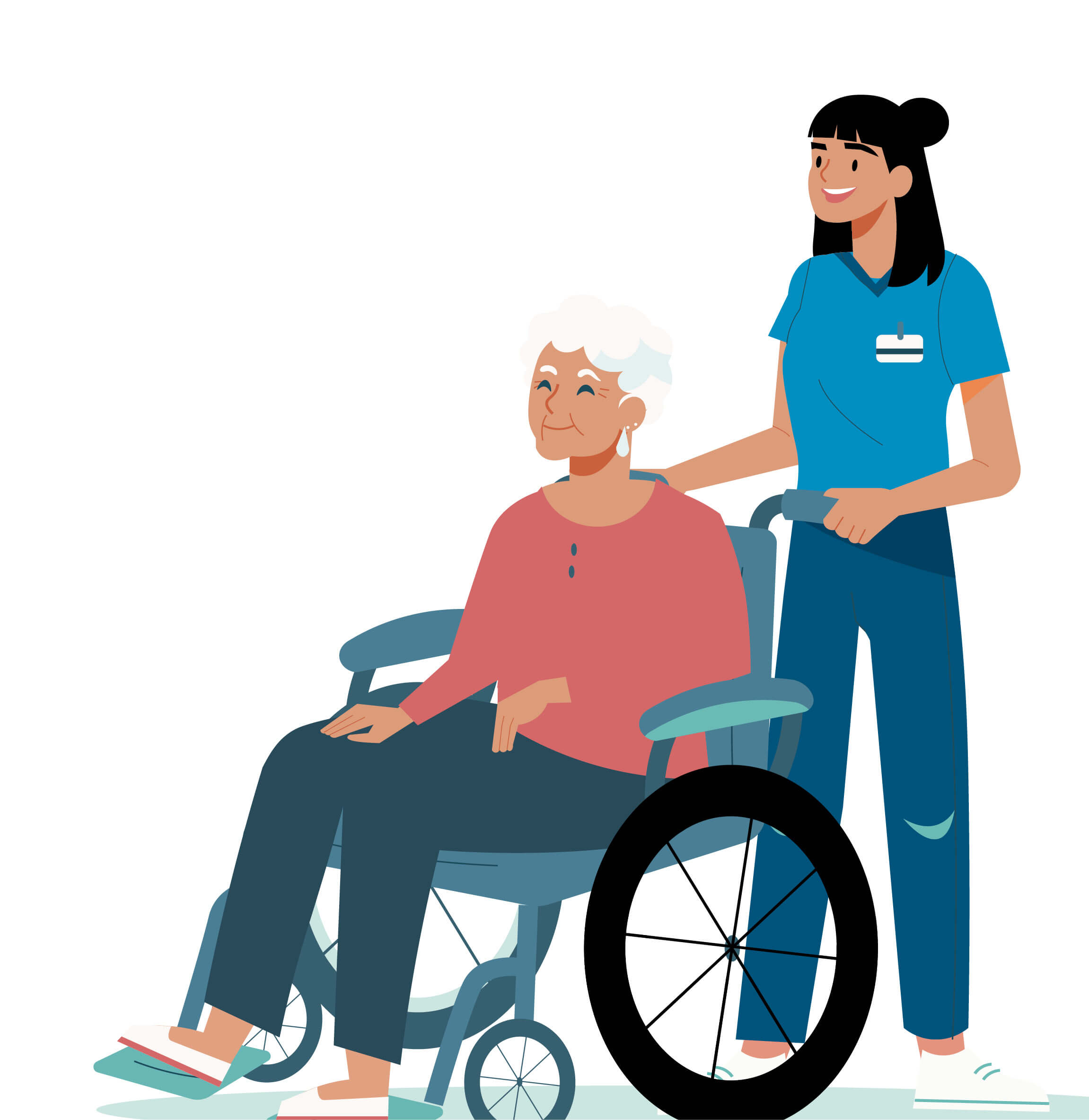In her younger days, Ms Adeline Lie often accompanied her grandmother to the hospital for check-ups on her underlying medical conditions. It was on these visits that Ms Lie, now 31, was first exposed to the roles of nurses in Singapore and became inspired to pursue a career in the field.


Ms Lie, who has spent nine years in the sector, was one of 125 nurses presented with the Ministry of Health (MOH) Nurses’ Merit Award by Health Minister Ong Ye Kung in July this year.
The award, started in 1976, recognises nurses who have displayed noteworthy and exceptional performance, participated in professional development, and contributed to raising the standard of the Nursing profession.
“I feel honoured. I see the MOH Nurses’ Merit Award as the highest recognition that I have received for my role as an Assistant Nurse Clinician,“ said Ms Lie, who graduated from Alice Lee Centre for Nursing Studies, National University of Singapore (NUS Nursing) in 2013.

Her fellow alumnus Koh Shu Hua, 33, said the award served as a motivation for her to continue her work in serving the community.
Ms Koh, who has been in Nursing for a decade, started out in a cardiology ward at the National University Hospital (NUH) after graduating in 2012, before moving on to community nursing at the end of 2017.
The switch to community nursing significantly changed Ms Koh’s perception of patients as she worked with them out in the community, away from the confines of the hospital.
“They are our neighbours and friends. They have their own identity, jobs and families. And all these go beyond the diagnosis we face in the inpatient setting,” she said.
“Once we see them as individuals and understand the reasons behind their actions, it’s easier for us to work out a care plan together, agreeing on one that works best for them in the most sustainable way.”
Also experiencing a paradigm shift as she advanced in her career was Ms Lie, whose initial impression of roles of nurses in Singapore was that they only carried out orders from doctors, gave medication and assisted with patients’ basic daily activities.
“After several years in nursing, I have learnt that the essence of nursing is to be an advocate for patients in many ways, going beyond the bedside care,” she said, adding that patient advocacy included raising the standards of care and developing critical thinking skills among fellow nurses.
But it is not always smooth sailing, as the award winners shared, as they both had to overcome challenges at times.
Community nursing is an “up and coming” sector, said Ms Koh, who is currently a senior staff nurse at the National University Health System.
The “hospital at home” community nursing programme she is involved in allows patients who otherwise have to be hospitalised, to recover in the comfort of their homes.
Ms Koh works with other healthcare professionals, such as doctors, dieticians and medical social workers, to perform nursing assessment and educational outreach to patients and their families in their homes.
She recalled how in creating new protocols for their role, the team worked hard to figure out how to best care for patients safely under the circumstances.
Their work was made even more challenging when MOH began allowing COVID-19 patients with complex conditions to recover at home, in order to relieve the bed crunch in hospitals here.
Such a logistical and administrative operation could not have succeeded without the whole team’s support, said Ms Koh.
For Ms Lie, some of the toughest challenges in her career stemmed from managing patients’ expectations and the stress that comes from her expectations and those of her colleagues. This was especially tough when she was still a novice nurse.
“When the pressure starts to feel overwhelming, I feel it is reassuring to share challenges and coping techniques with like-minded peers or seniors, and be each other’s cheerleader,” she said.
Career fulfilment
One particular case Ms Lie recalls handling is the recovery journey of a patient who was admitted for Stevens-Johnson syndrome, a rare but severe skin reaction.
The patient’s condition required her to receive one-on-one care, with nurses spending hours just dressing her wound.
“After several weeks of not being able to walk or move due to severe pain and blistering, it was heartening to see the patient walk out when she was discharged,” recalled Ms Lie.
Ms Koh’s Nursing journey shed light on the importance of the family in fostering healthy lifestyle habits – a key reason she made the change from cardiology to community nursing. She remembers feeling baffled when she saw family members eating fast food with patients who underwent critical surgery just days before.
She felt that such incidents could be leveraged as a learning opportunity to improve the lifestyle choices not just of the patients, but also their family members.
“An individual’s lifestyle is typically affected by upbringing and familial habits,” explained Ms Koh.
“Most families live together in Singapore, so I hope to not just focus on individual patients but also their families and help as many people as possible.”
Truly, the roles of nurses in Singapore go beyond carrying out the doctor’s orders and assisting patients in their daily activities. Whether nurses work in the hospital or community, they advocate for the patient – and their family’s – holistic health.



